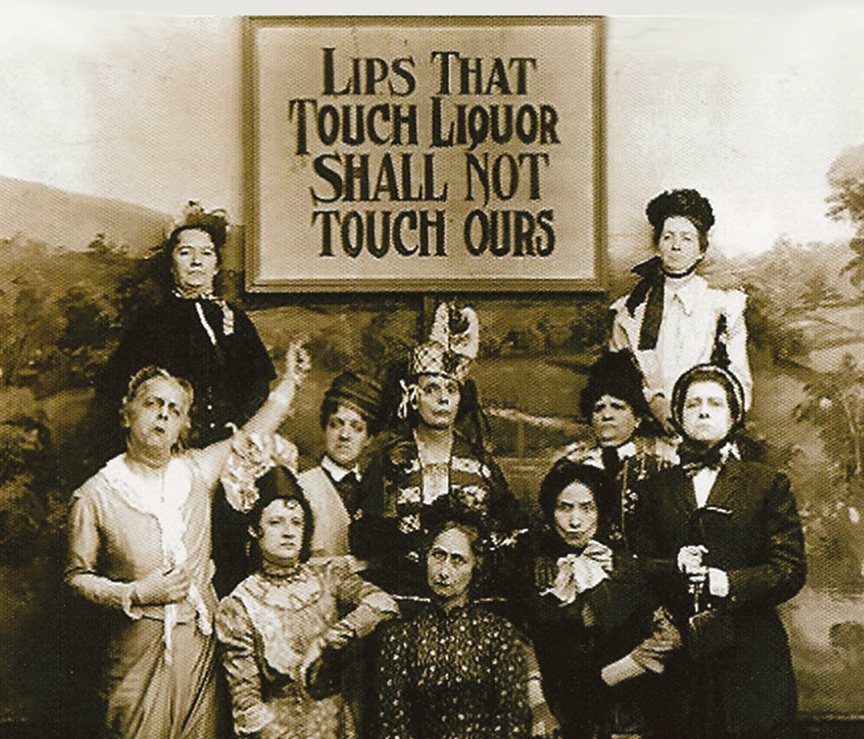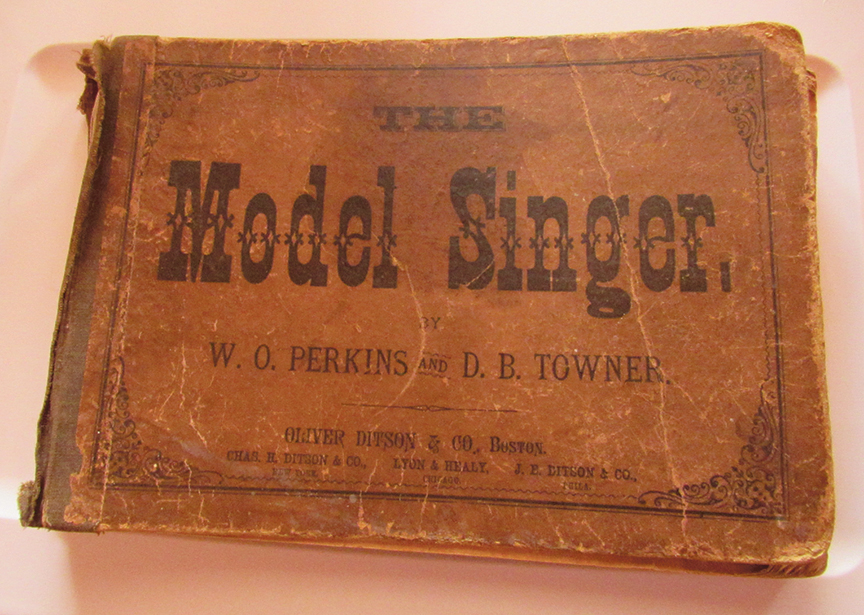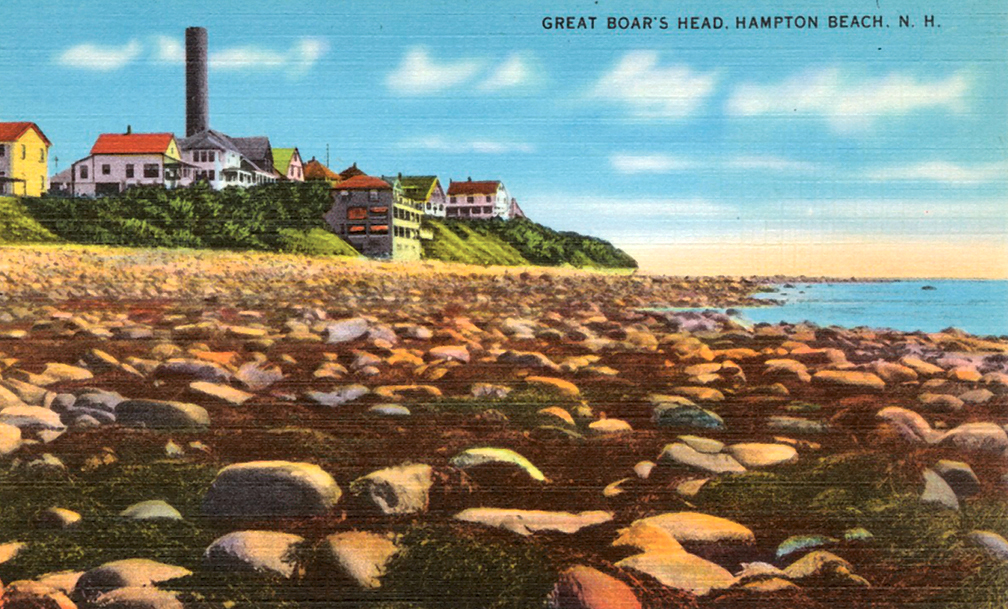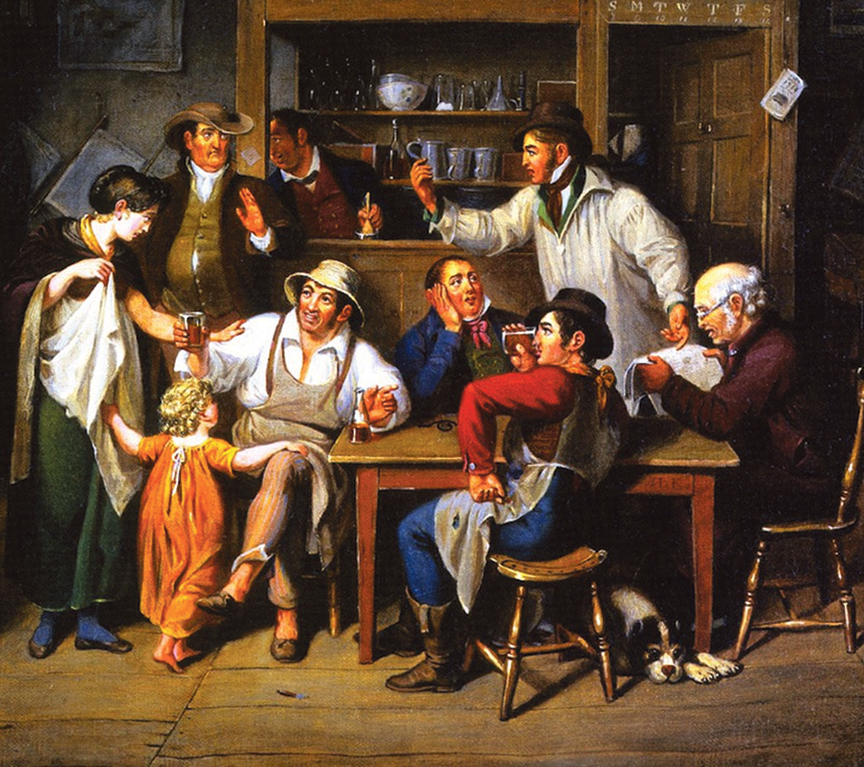Prelude To Prohibition – NH Changed Its Drinking Habits



by Robert Hanaford Smith, Sr.
Weirs Times Contributing Writer
During much of the first half of the 19th century (1800’s) the consumption of alcoholic beverages, particularly rum and hard cider, was almost universal in New Hampshire with both men and women consuming large amounts.
At every social event, including marriages, funerals, and church socials, it was the custom to serve alcoholic drinks. In 1792 the New Hampshire legislature passed a law requiring anyone selling alcoholic beverages to be licensed by the selectmen in the individual towns, and the selectmen apparently had few reservations in handing out licenses, even though many might just cover a few days, usually before some “big” event.
Many farmers had their own barrels full of hard cider. This custom of frequent indulgence in “ardent spirits”, as they called them came at a cost.
In Sanbornton several men were said to have lost the possession of their farms as a result of over-indulgence in ardent spirits. One man who traveled some distance to deliver a load of lumber was said to have drunk more strong drink than the value of the lumber. “The effects of intemperance, here as everywhere, have much oftener proved deplorable …” wrote Sanbornton’s historian.

John Eastman, commenting on the situation in Andover, said that the practice had caused much anxiety in that town with homes being wrecked and many complaints being addressed to the selectmen. He wrote: “This general habit of drinking liquors and cider soon developed a class of people with weak wills and little self-control, and great excesses were not uncommon in that limited class.”
Mr. Metcalf had similar things to say about the heavy drinking in the town of Bristol. He wrote, “Many a man lost his farm because the fruit of his labor went for strong drink.” And “Intoxicating drink was responsible for the loss of several lives in Bristol.” Accidents happened and several people drowned. A New Hampton boy reportedly died after his father “compelled” him to drink.
This current year of 2020 is certainly one of the most unusual I have ever experienced and if it were not for the unusual things that have occurred we would probably be hearing more about the unusual year of 1920, one hundred years ago.
The enacting of the terms of the Eighteenth amendment to the Constitution of the United States, that of Prohibition, began in January of 1920. But before then, with the drinking problems in the early 1800’s, some leaders in New Hampshire’s towns began measures to deal with the problem.
In Sanbornton, Rev. and Mrs. A. Bodwell decided that it was their responsibility to do something to change the culture of drinking. What they did in their community was looked upon as an act of courage. They hosted a large party at their house which included the leading members of their church congregation. The set custom for such parties was that at a certain time the hosts would bring out the alcoholic beverages and serve them to the guests. The Bodwell’s decided that they weren’t going to do that, and they didn’t. The expected time to serve the drinks arrived, but the long held habit of the sharing of liquor was broken by the resolve of the Reverend and his wife. That rumless party became the beginning of a temperance movement in Sanbornton.
Resolutions were passed at the annual town meetings in an attempt to control the problem. One around 1812 read: “Whereas our town meetings are frequently disturbed by drunkards, who are made drunk by ardent spirits kept near the town house, contrary to the laws of New Hampshire; therefore, Resolved, That there be a committee of three appointed by the Moderator to enforce the law at the expense of the town.”
The Sanbornton and Gilmanton Teetotal Temperance Society was organized in February of 1833. The pledge of the members was as follows: “We agree not to drink, make, sell, or give away cider, strong beer, or any other kind of fermented liquors or distilled spirits, to be used as a beverage.
On February 22, 1842 a total abstinence society was organized in Bristol in the Congregational Church and was called The Washingtonian Society. One hundred and fifteen persons signed an abstinence pledge on that day and additional names were added afterwards. Members agreed to abstain from all intoxicating beverages and to keep from manufacturing such or giving such to their friends. Part of their pledge said concerning such beverages, “..that in all suitable ways we will endeavor to promote the total abstinence from them as a beverage, as, in our opinion, the only sure way to reclaim the fallen; to remove temptation, and to hand down the blessing of temperance to generations to come.”
In 1843 the town of Bristol voted not to license the sale of intoxicating drinks with 41 residents casting their votes in favor of licensing and 145 voting against it, making Bristol one of what came to be known as dry towns. The selectmen did though, for many years, license someone to sell liquors for medicinal, mechanical, and chemical purposes, and for the use of churches during the observance of The Lord’s Supper.
The movement away from the use of “ardent spirits” was not a unanimous one by the people of New Hampshire, but might be seen as a prelude to what would happen years later with the period of American history that is known as Prohibition.
The town meeting at Sutton in 1848 included a vote on a Resolution that would petition the New Hampshire legislature to pass a law making it illegal to sell wine and other intoxicating beverages except for certain medicinal and other purposes. The resolution was narrowly defeated with 62 in favor and 73 against.
The town did ask the selectmen not to issue any licenses for the sale of “spirituous liquors” for the next year.
A Manchester newspaper printed the following in the year 1854: “INTEMPERANCE- its march of ruin is ever onward- it invades the social and family circle, and spreads woe and sorrow on all around- it cuts down youth, and age in its weakness-it bereaves the doting father- breaks the mother’s heart- extinguishes natural affection- erases conjugal love- blots out filial regard- blights parental hope- and brings down mourning age in sorrow to the grave…it poisons felicity- ruins morals- kills peace- blasts hope- then mocks the world.”
The temperance movement in the 1800’s was led mainly by the churches, but not universally supported by church members. It was a voluntary move aimed at easing problems caused by excessive drinking.
For some, giving up tobacco was next and it was said of them that they found no rest until they gave up both.



